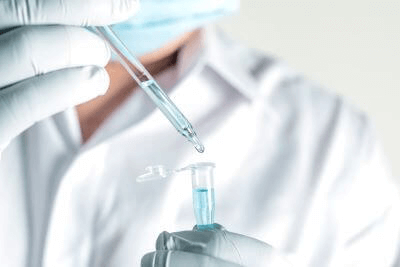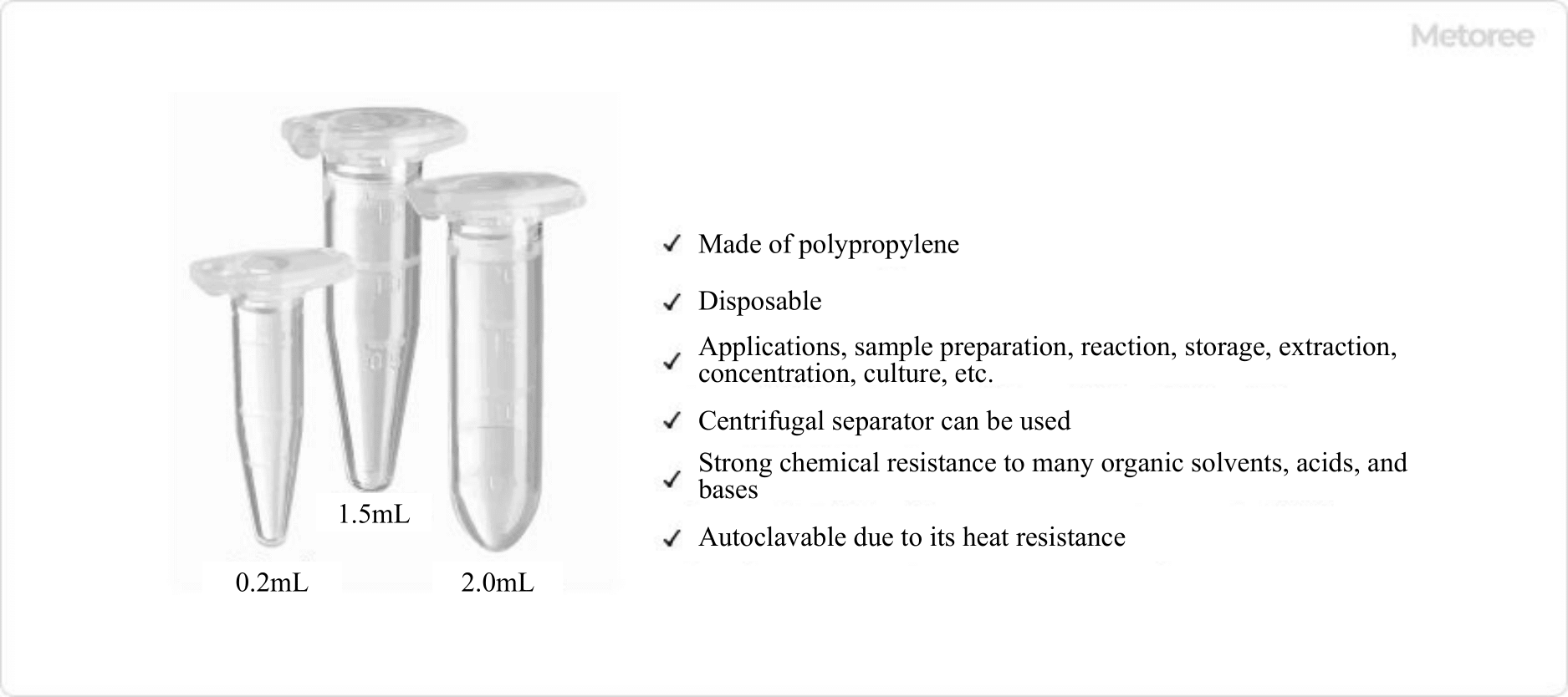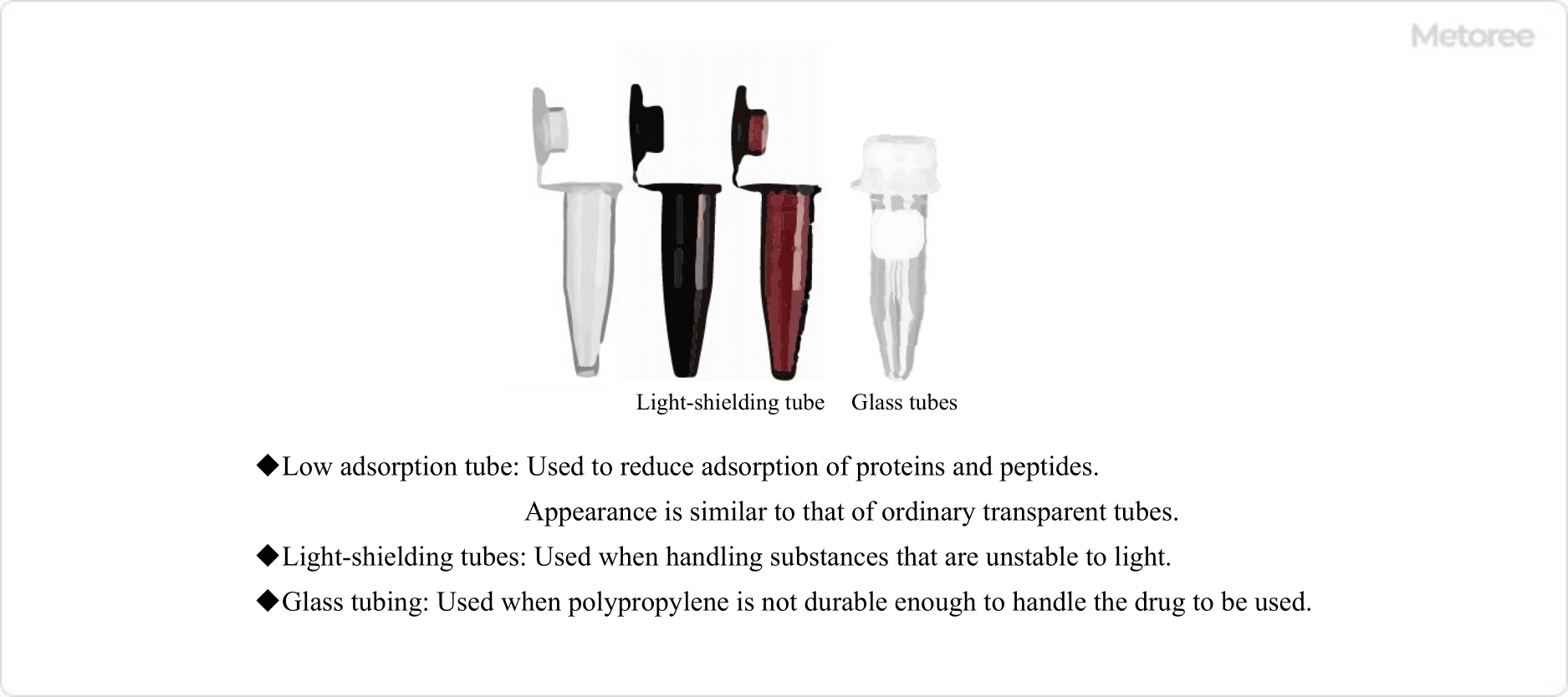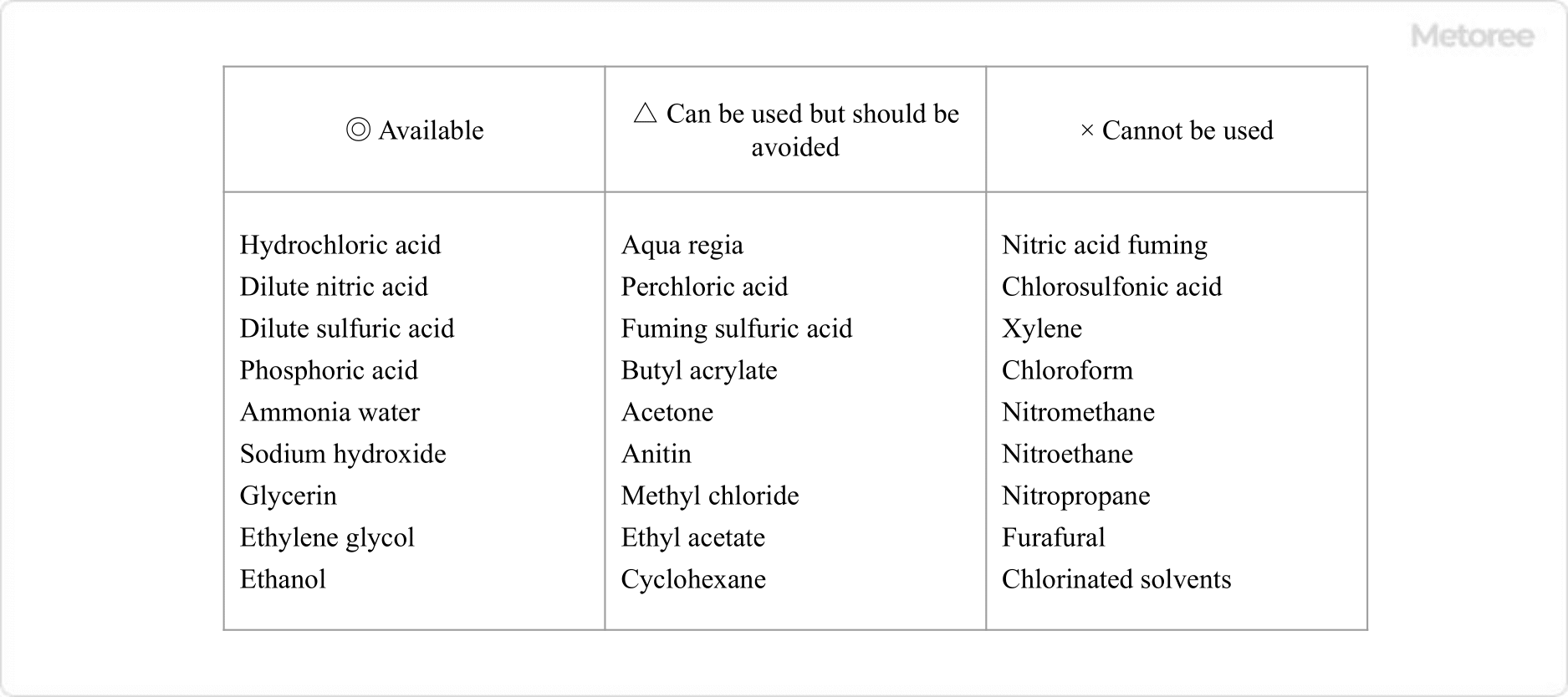All Categories
History












This section provides an overview for microtubes as well as their applications and principles. Also, please take a look at the list of 17 microtube manufacturers and their company rankings. Here are the top-ranked microtube companies as of February, 2026: 1.Ashcroft, Inc., 2.Corning Incorporated, 3.Bio Plas, Inc..
Table of Contents
Categories Related to Microtubes

A microtube is a small polypropylene test tube in microliter to milliliter sizes used in biochemistry and molecular biology. They are also called microcentrifuge tubes because they are often used in microcentrifuges.
Since contamination of foreign matter greatly affects the results of experiments conducted in microliter units, these tubes are disposable consumables.
There are various capacities such as 0.2ml, 1.5ml, 2.0ml, etc. The locking lid is connected to the body. The locking lid is connected to the body for excellent sealing.

Figure 1. Overview of microtubes
Microtubes are used for sample preparation, reaction, storage, extraction, concentration, and culture. They are available in a variety of materials and shapes depending on the application.
For example, heat control is important in PCR tests that handle genes, and it is also necessary to use tubes that are free from contamination by DNase, RNase, or nucleic acids. For this reason, PCR tests use special microtubes with relatively thin, uniform walls, excellent thermal conductivity, and guaranteed cleanliness.
For other analyses involving proteins and peptides, a type of microtube that reduces adsorption on the inner wall (low-adsorption tube) is used.
Microtubes are generally made of polypropylene. Polypropylene has high heat resistance among thermoplastic resins and can be used for autoclaving.
Polypropylene microtubes also have excellent chemical resistance and are resistant to acids and alkalis such as sulfuric acid and calcium hydroxide, as well as many organic solvents. However, there are some chemicals, such as chloroform and highly concentrated acids, that cannot be used, so be sure to check the product information.
When using solvents that cannot be used with polypropylene, glass microtubes should be used. Glass microtubes are more resistant to chemicals than polypropylene microtubes. They are also highly transparent, making them suitable for use when observation of the contents is required.
Other low-adsorption type microtubes have a variety of low-adsorption treatment methods, such as silicone coating and MPC polymer coating, and you need to select the right product for your purpose.

Figure 2. Special microtubes
First, select the tube size according to the sample/solvent volume to be handled. Next, make sure that none of the solvents or chemicals used will dissolve or react with the polypropylene tubing material. If polypropylene tubing cannot be used, glass microtubes should be selected.
Microtubes are generally clear and colorless, but fully light-shielded or translucent partially light-shielded tubes are also available. If the sample or chemical is sensitive to light stimulation, choose light-shielding tubes.
When proteins, peptides, etc. are used, low-adsorption tubes should be selected according to the nature of the experiment and the characteristics of the sample. Since there are different types of low-adsorption processing methods, it is important to select the appropriate product for the experimental system.

Figure 3. List of chemical resistance of polypropylene microtubes
For example, the silicone coating is a water-repellent finish that is suitable for highly viscous blood and nucleic acids. The coating may peel off when organic solvents are used.
On the other hand, MPC polymer coating is a hydrophilic process and is suitable for hydrophobic samples such as proteins. It is resistant to organic solvents such as acetonitrile and DMSO, but not to strong acids and alkalis.
Low adsorption tubes are also available, in which surface adsorption is suppressed by blending a proprietary protein/peptide low adsorption resin material, rather than by polypropylene surface treatment.
*Including some distributors, etc.
Sort by Features
Sort by Area

Ashcroft was founded in 1852 in Bridgeport, Connecticut to create instruments to protect steam-powered industry workers and today is a manufacturer in pressure and temperature measurement instrumentation.Ashcroft serves the chemical, food & beverage, metals & minerals, oil & gas, pharmaceutical & research, power, and water & wastewater markets. Ashcroft products include pressure instruments including pressure gauges, switches, sensors, and isolators; test instruments including calibrators, controllers, testers, and test gauges; and temperature instruments including thermometers, thermowells, RTDs, thermocouples, multipoint temperature sensors, and OEM temperature sensors.

Globe Scientific Inc. is an American ISO 9001 certified manufacturer of laboratory equipment that was founded in 1983 before its acquisition by the GSI group in 2022. Headquartered in Mahwah, New Jersey, the company produces laboratory benchtop equipment, glassware, and plasticware including centrifuges, vials, microscopes and beakers. These are primarily used for chemical testing or analysis, research, and quality control applications. Globe Scientific also offers contract manufacturing and packaging services for customer projects and equipment orders. The company chiefly serves clients in the education, healthcare, biotechnology, and laboratory sectors.

Corning Incorporated, founded in 1851 and headquartered in Corning, New York, is a manufacturer and supplier of specialty glass, ceramics, and optical fiber. Their offerings include optical fiber for long-distance light signal transmission, specialty glass for applications like displays and lighting, ceramics for various uses, such as cookware and medical implants, and advanced materials like 3D printing powders and ceramic matrix composites. Additionally, Corning provides products for the life sciences industry, such as labware, consumables, and analytical instruments.

Bio Plas, Inc., founded in 1977 and headquartered in San Rafael, California, USA, is a manufacturer of laboratory products. The company specializes in the manufacturing of optimal-quality laboratory consumables, including microcentrifuge tubes, PCR tubes, and pipette tips. These precision-engineered products offer robust performance and stability, critical for various laboratory applications. The laboratory consumables are designed to ensure sample integrity, reduce contamination risks, and enhance overall efficiency in research and diagnostic settings. The products find application across diverse industries, including molecular biology, genetics, pharmaceuticals, and clinical diagnostics.


Panasonic Healthcare was founded in 1969 in Tokyo, Japan as a manufacturer of healthcare devices and services and operates under PHC Holding Corporation. With a strong hold on Diabetes Management, Diagnostics, Life Sciences, and Healthcare Solutions, Panasonic Healthcare is here to adress global needs in energy, food, housing, health, and information technology. Panasonic Healthcare has a capital of 47.0 billion yen and employs approximately 9,374 individuals worldwide as of March 2022. The company's shareholders include KKR (Kohlberg Kravis Roberts & Co. L.P.), Mitsui & Co., Ltd., Life Science Institute, Inc., Panasonic, and L Catterton.

SARSTEDT AG & Co. KG, founded in Germany, in 1961 is a manufacturer of devices and consumables for medicine and science. The company's product portfolio includes protein analysis reagents, diagnostic equipment, patient monitoring systems, surgical instruments, and rehabilitation aids. Their products are used in industries such as Food and Beverage, Pharmaceutical and Biotechnology, Chemical and Petrochemical, Environmental Testing and healthcare. The company has a national distribution network and a customer and technical support center.


Eppendorf AG, founded in 1945 and headquartered in Hamburg, Germany is a manufacturer and supplier of laboratory equipment and consumables. The company specializes in producing a wide range of products including centrifuges, pipettes, bioreactors, and consumables for research, diagnostics, and other life science applications. The company is divided into the business units liquid handling, consumables, separation and instrumentation, and bioprocess. Holding various certifications, the company ensures its products adhere to international quality standards.

Greiner Bio-One International GmbH, established in 2001 at Kremsmunster, Austria, is a manufacturer and supplier of cutting-edge plastic laboratory products for commercial and research purposes. The company with groundbreaking technology and proprietary Bioscience formula makes laboratory plastic products intended for biotechnology, pharmaceutical, and diagnostic applications. The products include vascular catheters, capillary blood collection tubes, microplates, mass cell culture products, and protein crystallization accessories. These analytics and bioscience products are used in multiple research and biotechnology sectors for educational, medical, and pharmaceutical purposes. These equipment are ideal for preservation, and precise analysis and helps in a faster process.







Ranking as of February 2026
Derivation Method| Rank | Company | Click Share |
|---|---|---|
| 1 | Ashcroft, Inc. |
17.3%
|
| 2 | Corning Incorporated |
13.5%
|
| 3 | Bio Plas, Inc. |
9.6%
|
| 4 | Globe Scientific Inc. |
9.6%
|
| 5 | Oxford Lab Products |
7.7%
|
| 6 | SUNTRINE |
5.8%
|
| 7 | Zhangjiangang Jielian Technology Co., Ltd |
5.8%
|
| 8 | BioTool Swiss AG |
3.8%
|
| 9 | LABELIANS |
3.8%
|
| 10 | MTC Bio. |
3.8%
|
Derivation Method
The ranking is calculated based on the click share within the microtube page as of February 2026. Click share is defined as the total number of clicks for all companies during the period divided by the number of clicks for each company.Number of Employees
Newly Established Company
Company with a History
*Including some distributors, etc.
*Including some distributors, etc.
| Country | Number of Companies | Share (%) |
|---|---|---|
 United States of America
United States of America
|
6 | 42.9% |
 Germany
Germany
|
3 | 21.4% |
 Japan
Japan
|
1 | 7.1% |
 China
China
|
1 | 7.1% |
 France
France
|
1 | 7.1% |
 Italy
Italy
|
1 | 7.1% |
 United Kingdom
United Kingdom
|
1 | 7.1% |
74 products found
74 products
Protein Wave Co., Ltd.
500+ people viewing
Last viewed: 1 day ago
SPICA consists of an MPI tube (inner diameter is only 3mmΦ), which is a chemically and physically modified general polyimide tube, and an API tube ...
F.C.R. & Bio Co., Ltd.
360+ people viewing
Last viewed: 15 hours ago
This product does not have a tube ID. Comes with rack lid lock function. ■Tube rotation prevention function ・Compatible with automatic cap attach...
F.C.R. & Bio Co., Ltd.
510+ people viewing
Last viewed: 1 day ago
External type (outer cap) that uses a new type of screw cap that does not use O-rings or gaskets. 0.3ml/0.55ml/1.0ml/1.5ml/2.0ml/4.0ml/10.0ml
F.C.R. & Bio Co., Ltd.
440+ people viewing
Last viewed: 1 day ago
Internal type (inner cap) uses a screw cap integrally molded with TPE, which is more airtight than an O-ring. 0.5ml/1.0ml
F.C.R. & Bio Co., Ltd.
420+ people viewing
Last viewed: 15 hours ago
■Tissue Tube for storing tissue pieces/cell pieces ・The inner diameter of the mouth is wide at 13.4 mm, the height is low at 25.9 mm, and the inne...
World Quality Biotech Co., Ltd.
160+ people viewing
Last viewed: 15 hours ago
This is a tube product. *Other model numbers are available.
10 models listed
F.C.R. & Bio Co., Ltd.
420+ people viewing
Last viewed: 1 day ago
■Ultra-trace volume (200μl) 2D corded tube ・Developed a 2D coded tube for ultra-trace volume (200μl) - Compatible with liquid nitrogen gas phase. ...
F.C.R. & Bio Co., Ltd.
440+ people viewing
Last viewed: 1 day ago
■1D/2D corded micro tube ROBO TUBE ・Compared to conventional micro tubes, the cap opens and closes very smoothly. -Reduces the stress of opening a...
F.C.R. & Bio Co., Ltd.
370+ people viewing
Last viewed: 1 day ago
Adopts SBS96 format. Achieves space saving. External type (outer cap) that uses a new type of screw cap that does not use O-rings or gaskets. 0.7m...
Wilco Co., Ltd.
260+ people viewing
Last viewed: 1 day ago
Engineering plastic tube.
5 models listed
F.C.R. & Bio Co., Ltd.
320+ people viewing
Last viewed: 1 day ago
Adopts SBS96 format. Achieves space saving. The cap is available in an internal type (inner cap) and a TPE stopper. 0.5ml/1.0ml/1.3ml
Miyahara Measuring Instruments Manufacturing Co., Ltd.
300+ people viewing
Last viewed: 15 hours ago
■Material ・1.5ml: Hard glass (JR-1) ・2.0ml: Hard glass (JR-2) ■Summary ・Good transparency You can write notes with a pencil, etc. - PE cap with...
2 models listed
Nippon Electric Glass Co., Ltd.
480+ people viewing
Last viewed: 2 hours ago
A thin-walled tube made of borosilicate glass. There are two types: round type and square type. "Microtube round type" is an extremely thin glass ...
Stem Co., Ltd.
380+ people viewing
Last viewed: 15 hours ago
■Features ・Made of polypropylene ・The tip has a scale in 0.1ml increments. ・Double seal cap structure ・Organic solvent resistance ・Autoclave s...
Nidek Advanced Technology Co., Ltd.
520+ people viewing
Last viewed: 1 day ago
We manufacture high precision pipes with a wall thickness of 10um or less. Mainly used for contact probes.
Japan Micro Co., Ltd.
500+ people viewing
Last viewed: 15 hours ago
Adopts impact-resistant KR (Key Resin) material suitable for postal health checkups
F.C.R. & Bio Co., Ltd.
410+ people viewing
Last viewed: 15 hours ago
A sampling tube made of high quality polypropylene homopolymer with excellent low adsorption properties. Capacity is 0.6ml/1.5ml/1.7ml/2.0ml. Ster...
Systech Co., Ltd.
280+ people viewing
Last viewed: 15 hours ago
■Features Consists of an 850 µL filter basket and a 2.0 mL capped receiver tube. There are three types of filter baskets to choose from: a large si...
F.C.R. & Bio Co., Ltd.
380+ people viewing
Last viewed: 15 hours ago
A durable, high quality polypropylene screw cap tube. Silicone O-ring ensures high sealing performance. Capacity is 0.5ml/1.5ml/2.0ml.
Systech Co., Ltd.
300+ people viewing
Last viewed: 15 hours ago
■Features Filter tubes for centrifuges are convenient filters for filtering small amounts of samples. Consists of sample chamber and receiver tube ...
F.C.R. & Bio Co., Ltd.
430+ people viewing
Last viewed: 15 hours ago
Compared to other companies, Lab Staff's cap is deeper, larger, and has superior sealing performance. There are two types of caps: dome type and f...
Systech Co., Ltd.
250+ people viewing
Last viewed: 15 hours ago
■Features This is a filter tube for smaller quantities. The filter is attached to the tip of the basket and is only <3mm in diameter. The placemen...
Systech Co., Ltd.
320+ people viewing
Last viewed: 15 hours ago
■Features A screw cap type microtube with extremely high strength, safety and reliability. In addition to boiling and irradiation, it can also be u...
Kokugo Co., Ltd.
490+ people viewing
Last viewed: 15 hours ago
Disposable micro test tube 1299 0.5mL 5.5φ×46mm (1,000 pieces)
Astec Co., Ltd.
240+ people viewing
Last viewed: 1 hour ago
It is made to fully fit each of the thermal cyclars of ASTEC, so we promise high reproducibility. ■ Product points ・ The tube is made of virgin p...
10 models listed
Yagyu Shokai Co., Ltd.
430+ people viewing
Last viewed: 1 hour ago
■Features ・Specimen storage container containing a special solution (US Patent No. 9,138,205) that can stabilize collected microorganisms, bacteri...
Yazawa Science Co., Ltd.
250+ people viewing
Last viewed: 15 hours ago